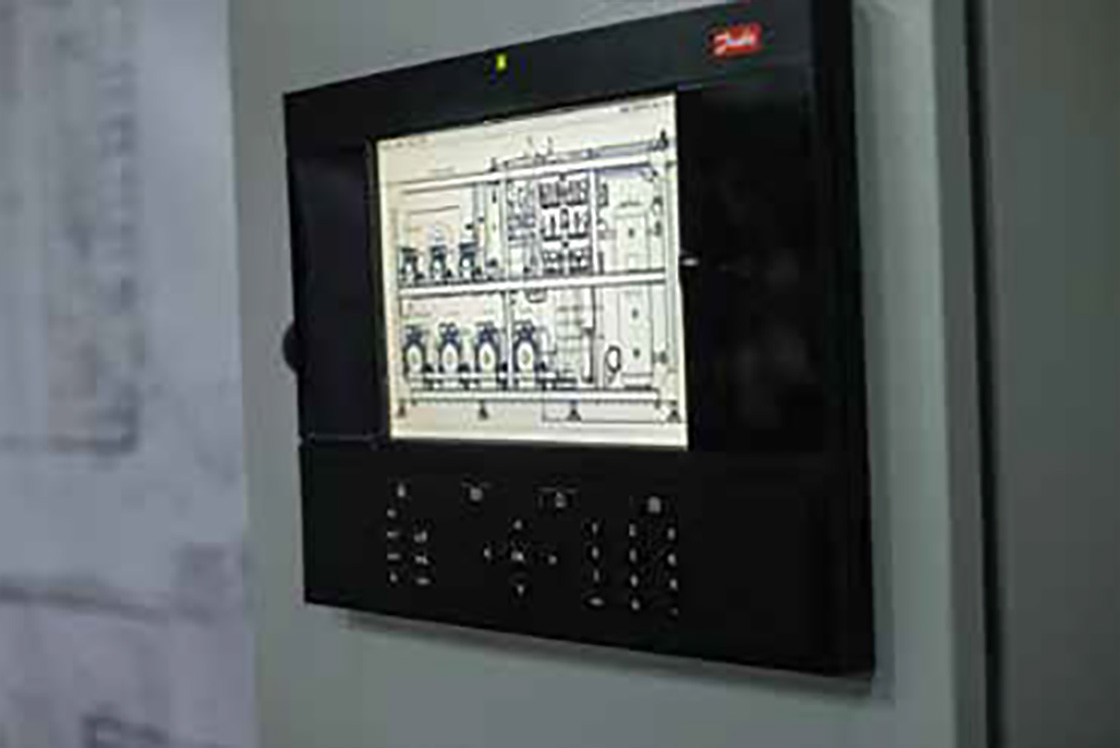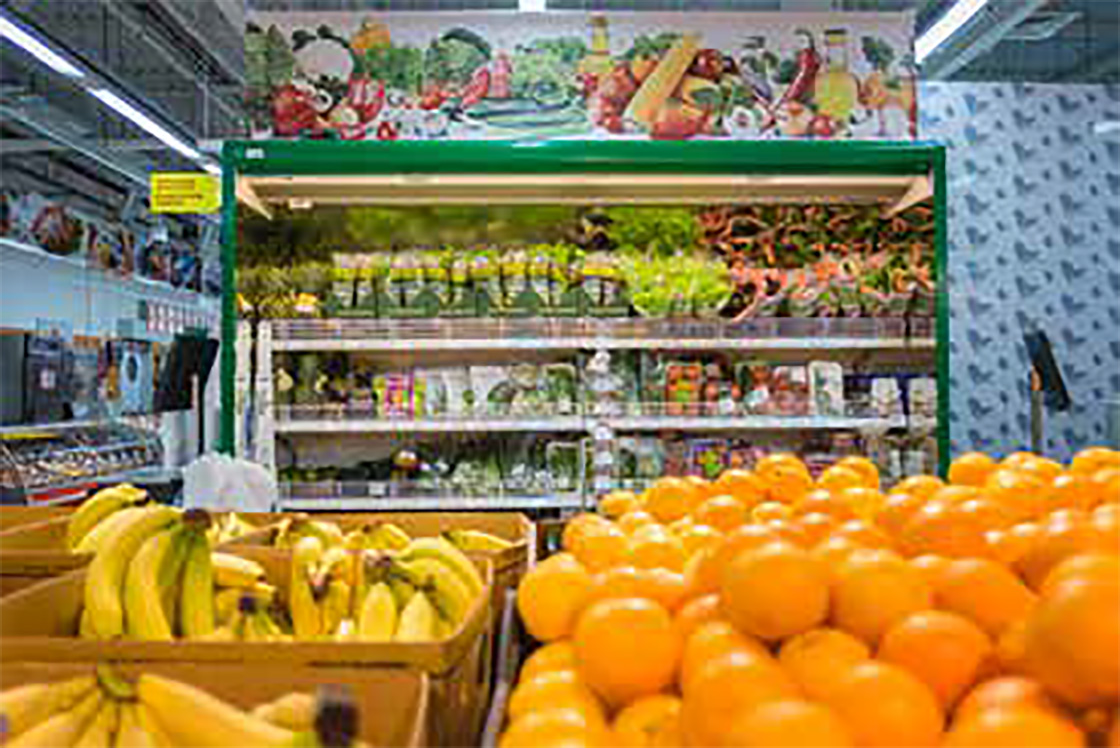In 2016, Russian retailer Magnit opened a new hypermarket in the Moscow region of Voskresensk and is one of several that have opened its doors during last year.
However, this one in Voskresensk is very special and stands out among its peers. It is the first hypermarket in Russia that uses a transcritical booster refrigeration system with carbon dioxide (CO₂), an eco-friendly and natural refrigerant.
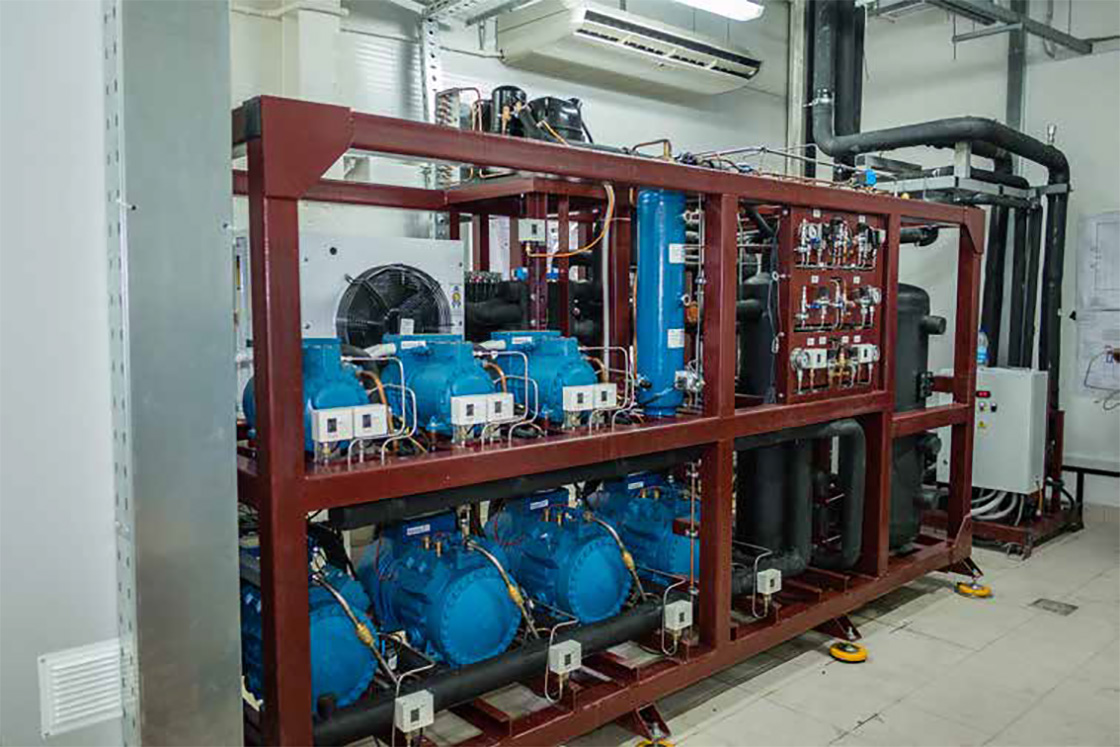
Transcritical booster pack
Transcritical booster pack was produced by Nord-SM company Commercial refrigeration furniture is produced by FREOR company
- 22 medium temperature cabinets
- 12 low temperature cabinets
- 2 medium temperature cold rooms
- 3 low temperature cold rooms
- 3 refrigerated zones
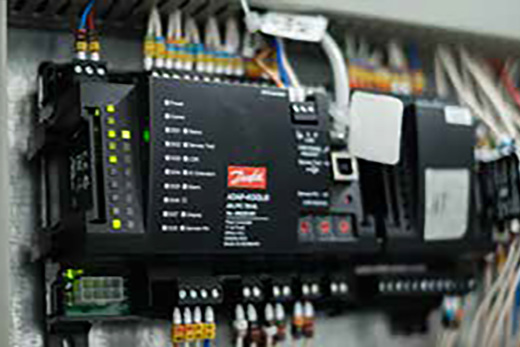
The compressor unit consists of:
Compressors: Frascold 1xS30-18TK, 3xS25-14TK + 1xA2-4SK3, 2xA1,5-3SK3
Gascooler: LU-VE XAV9X 9912, 2 EC fan
Capacity and ejector controller: Danfoss AK-PC 781A
Ejector: Danfoss Multi Ejector
EXV controllers: Danfoss AK-CC 550A
EXV: Danfoss AKVH
High pressure electronic expansion valves: Danfoss ICMTS and CCMT
Line components and automatic controls: Danfoss GBC H-NRVH, DMT KP6W, CCB, MBC
Gas detectors: Danfoss DGS
System Manager: Danfoss AK-SM 850
Danfoss took part in system design, testing of packs and commissioning.
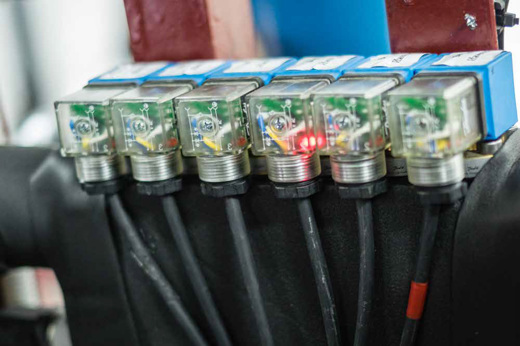
CO₂ - Better with Danfoss ejector technology
It is the use of a Danfoss Multi Ejector that allows the transcritical CO₂ system to obtain maximum energy efficiency. In addition, the Multi Ejector allows for smaller compressor packs to be installed, which reduces the initial costs. Despite the simplicity and widespread popularity of the technology, the Multi Ejector was not previously used in transcritical commercial refrigeration systems. However, as the result of years of work in close cooperation with the organization SINTEF, Danfoss managed to develop a unique Multi Ejector to complement these specific transcritical refrigeration systems.
Magnit was among the first to introduce the new ejector technology in their transcritical refrigeration system. Their decision was made based on the results of numerous tests with ejectors and confirmed efficiency improvements. For the moderate climate zone of Russia, the energy saving potential of transcritical systems with the use of the ejector is 20-25% compared to traditional refrigeration systems that use HFCs (e.g., R404A).
"We see a growing interest in natural refrigerants in Russia,especially in CO₂. Additional new hypermarkets that operate on transcritical systems are expected to open next year. We believe that every year their number will grow rapidly. Danfoss is aware of its role and responsibility in training qualified personnel. For this we offer special CO₂ training in both our own and in our partners' training centers", says Alexander Seravin, CO₂ technology expert at Danfoss Russia
Read more Danfoss Case Stories
Learn more about Danfoss Smart Store Solutions
Danfoss CO₂ solutions

